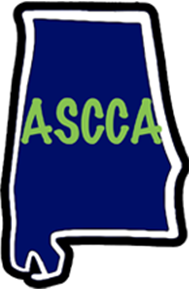This site will chronicle the activities and programs of the Oscar Dunn Rotary Environmental Center. We are very proud of this truly beautiful facility. Please follow along as this site grows.
The facility is a reality today. What follows is the initial announcement of plans to construct the Oscar Dunn Center.
Since Camp ASCCA’s opening in 1976, outdoor and environmental education for all camp sessions has been one of the goals of the camping program. We believe that it is vitally important for each and every camper to not only experience the beauty and splendor of nature, but to have the opportunity for education and stewardship training as well. The Camp ASCCA Outdoor Education Program has grown from a small nature craft program in 1976, to a now comprehensive, multi-faceted program. Both disabled and non-disabled campers alike have been able to participate. We have used instructional techniques from the science curriculum of the State of Alabama Public School System, as well as from The United States Fish and Wildlife Service and the University of South Alabama to develop programs for all levels of camper participation and ability.
The past five years have seen exceptional growth in our Outdoor Education programs. We are currently involved in a relationship with the Auburn University Department of Curriculum and Teaching to provide outdoor education and Project Wild activities to several elementary schools in our Alabama school system. This program not only provides outdoor education experiences to third through fifth graders; it also provides college students preparing for education internships the opportunity for a Project Wild Facilitator certification.
Additionally, Camp ASCCA provides an annual Environmental Camp to the fifth grade class of the St. James School in Montgomery. Over one hundred students study environmental issues and participate in Outdoor Adventure activities over a three-day and two-night educational camp. 1999 also saw the beginning of the Alexander City Area Campfire Boys and Girls Environmental Weekend. Over one hundred first through sixth grade boys and girls from Tallapoosa County and Alexander City enjoyed a two-day outdoor education and Outdoor Adventure camp experience. Camp ASCCA currently has more demand for these activities.
The camp also enjoys outstanding relationships in Outdoor Education with the State of Alabama Department of Conservation and Natural Resources Game and Fish Division, Natural Resources Section, and Education Section, as well as Operation Waterwatch and the Lake Martin Lakewatch organization. Not only do these organizations sponsor our camps with educational materials, they also provide us with highly qualified professionals and volunteers to serve as teachers for our programs.
The Long Range Planning and Buildings and Grounds Subcommittees of the Camp ASCCA Board of Directors have identified the need to build an Outdoor Education Environmental Center. Presently all of our classes are taught in any one of our buildings, space available. Our displays and specimens are housed in the Library room at the Arts and Crafts building along with any related gear and equipment. We have many nice donations and collections of taxidermy, Native American artifacts, and nature objects that simply have no room for display. The Environmental Center will be named in honor of Oscar C. Dunn of Ozark, Ala. Mr. Dunn was a well-known and respected Rotarian, a key volunteer of Camp ASCCA and strong supporter of the Alabama Easter Seal Society for many years.
Project Design
The proposed new “Oscar C. Dunn Rotary Environmental Center” will be an approximate 4,000 square foot building located on the shoreline of Lake Martin, accessible by existing paved nature trails. The Center will serve as an accessible teaching-museum facility. It will house all of our programs relating to Environmental Education and Awareness including current science camps and Outdoor Education weekends. It will also house all donated artifact collections and other exhibits that currently do not have display space. It will feature a presentation room with an enclosed film control area. This presentation room will be used to show nature and environmental oriented slide and video presentations, conduct classroom-type education programs, computer interactive programs, and serve as a large meeting site for off-season groups. The plan also calls for a separate display and teaching area and an exhibit hall that will provide viewing cages for seasonal wildlife displays, self-guided museum activities, and hands on interactive laboratory and work areas. Also featured in the Center will be a large inside viewing area of Lake Martin from the Exhibit Area as well as an outside deck observatory area. The deck will provide wildlife and lake viewing as well as a site for future astronomy and meteorology studies.

Located in Alabama on Lake Martin, Camp ASCCA offers campers a wide variety of traditional recreational and educational activities with a unique design for accessibility.

Sign up for our eNewsletter to keep up with events and happenings at Camp ASCCA!